
This New App Takes the Bookish Internet in One Place — And Wants to Help You Find Your Next Read
In an industry as wide-ranging as publishing, book discovery comes in different ways. Perhaps you heard about a book from your favorite vlogger or from a good friend. Maybe it’s something that TikTok’s “For You” page has shown you, or maybe it’s something that the bibliologists at TBR have recommended to you. The possibilities are endless, both online and offline. But now a new app wants to put all your options together under one roof.
In July, the app Tertulia was launched, promising streamlined book discovery. “In a world full of rich discovery services for movies, music, television, and fine art, there is, remarkably, no existing equivalent for books. And that is what we have spent the last eighteen months working on,” says Sebastian Cwilich, one of the app’s founders, in a news release.
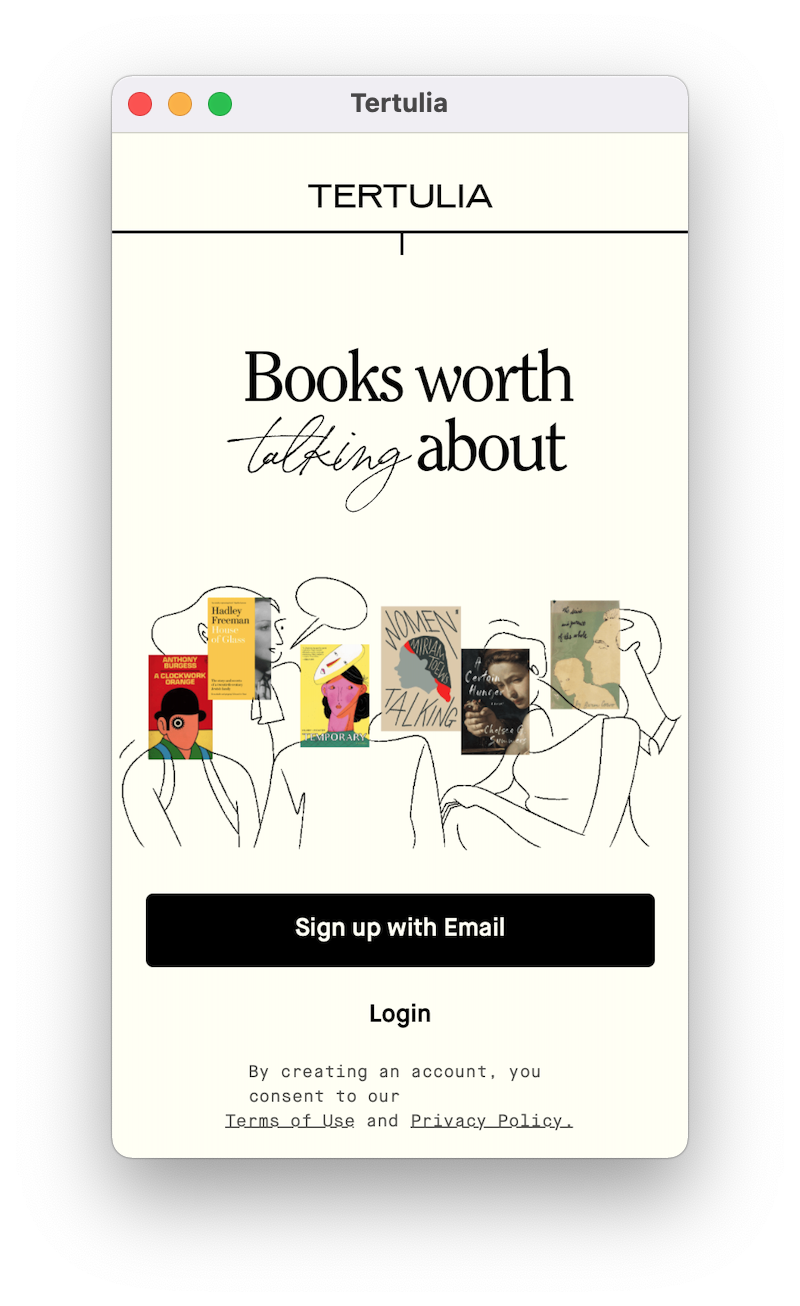
Tertulia uses AI technology and editorial curation to pull together various sources and make book recommendations. The app’s name is Spanish and means “literary salons, especially ones that take place in Spanish cafes and bars.” It aims to “create the best book page on the internet.” You can browse recommendations curated from different bookish websites, and if you like the book, you can buy it directly in-app. As of the moment, the app has 15 million titles, and there are plans to add audiobooks at the year-end and ebooks next year.
The app is currently only available on iOS, though. But Cwilich says the web version is coming this fall and the Android app will be launching in 2023.
So far, so good. But under the hood, how does it stack up against existing and established bookish apps out there? Well, I tried the app so you don’t have to.
Getting Started with Tertulia
After signing up, the app prompts you to select your favorite genres.
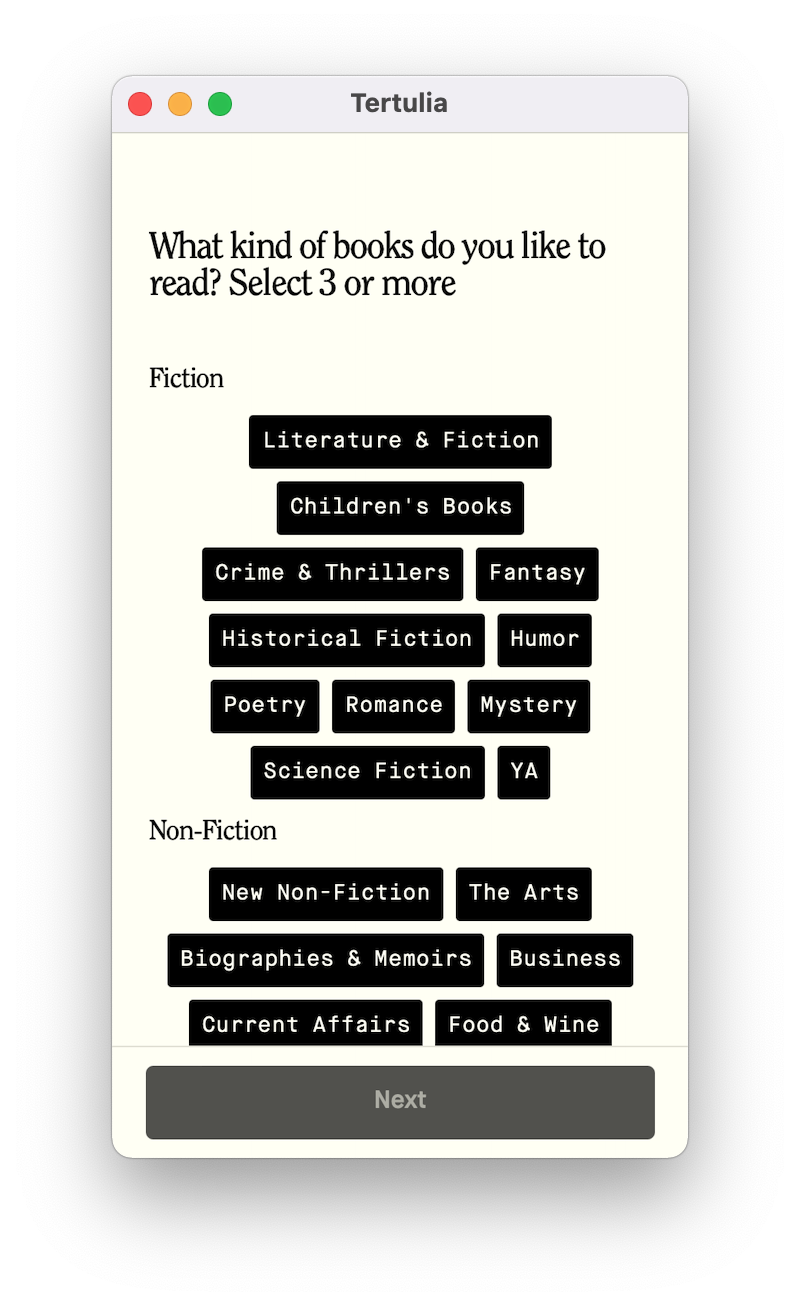
Then, you’ll be able to choose which “voices” you want to hear from: These are authors conventionally grouped together by profession or community such as journalists, poets, LGBTQ+ voices, etc.
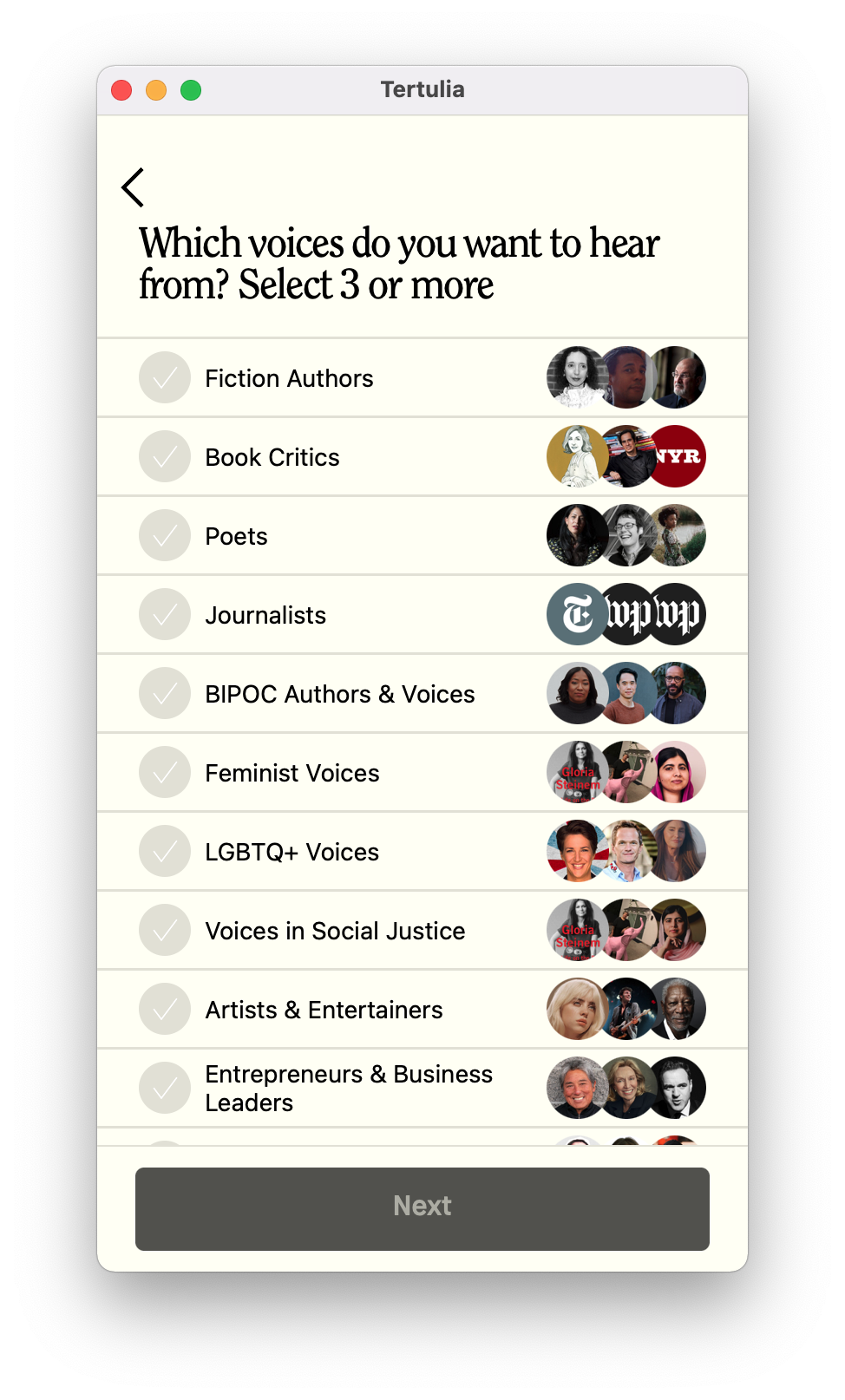
The app has five tabs, and the first one, Today, features a personalized feed. After signing up, the app will automatically send you some recommendations, and it refreshes these selections daily. Interestingly, this tab pulls data from book Twitter and bookish coverage of publications such as The New Yorker. Bookish social media posts can also appear in this tab, like when an author raves about a book or a media outlet mentions it in an article.
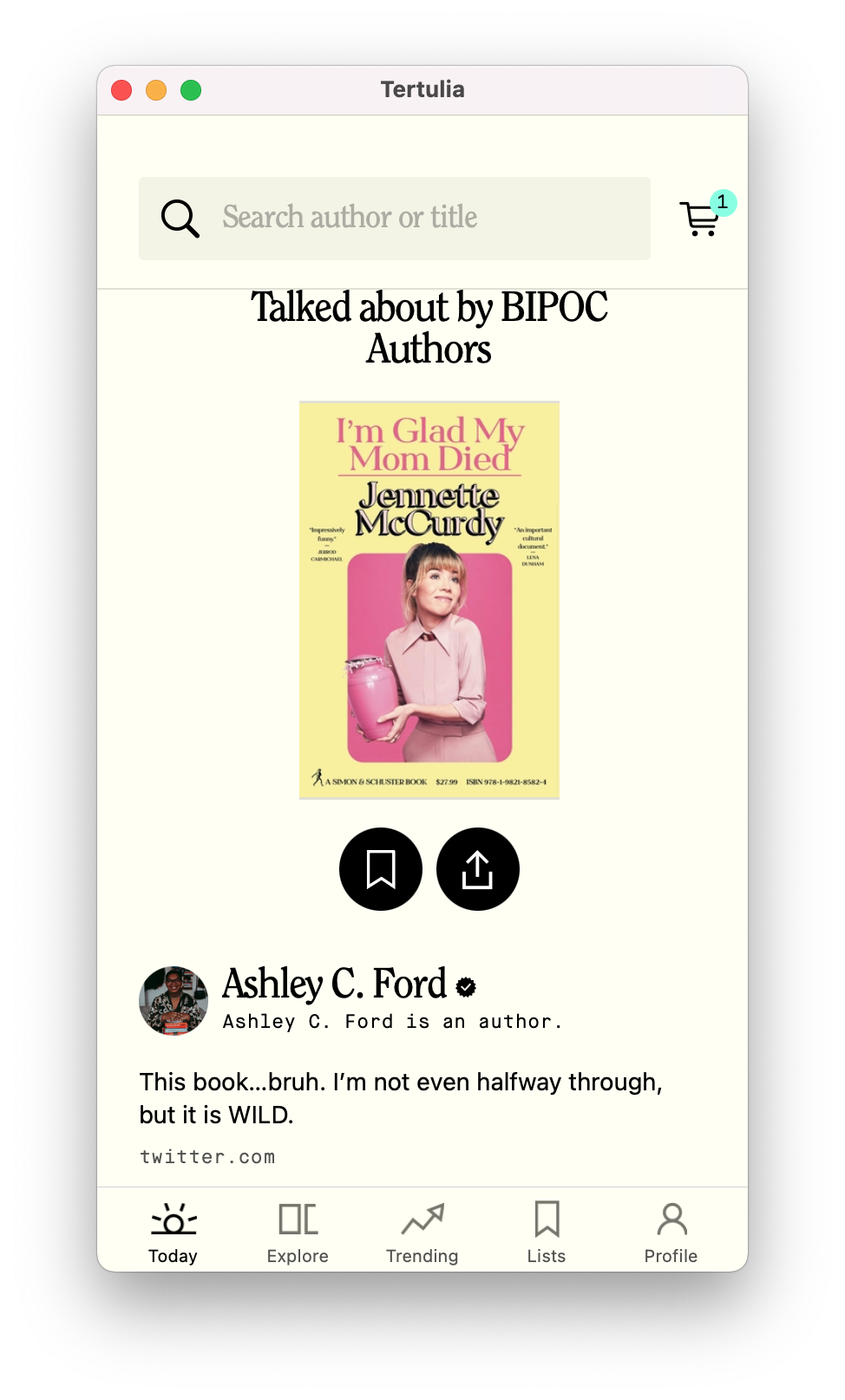
Meanwhile, the Explore tab feels like the app’s news feed or the “For You” page. This is where the books from voices you’ve selected earlier appear.
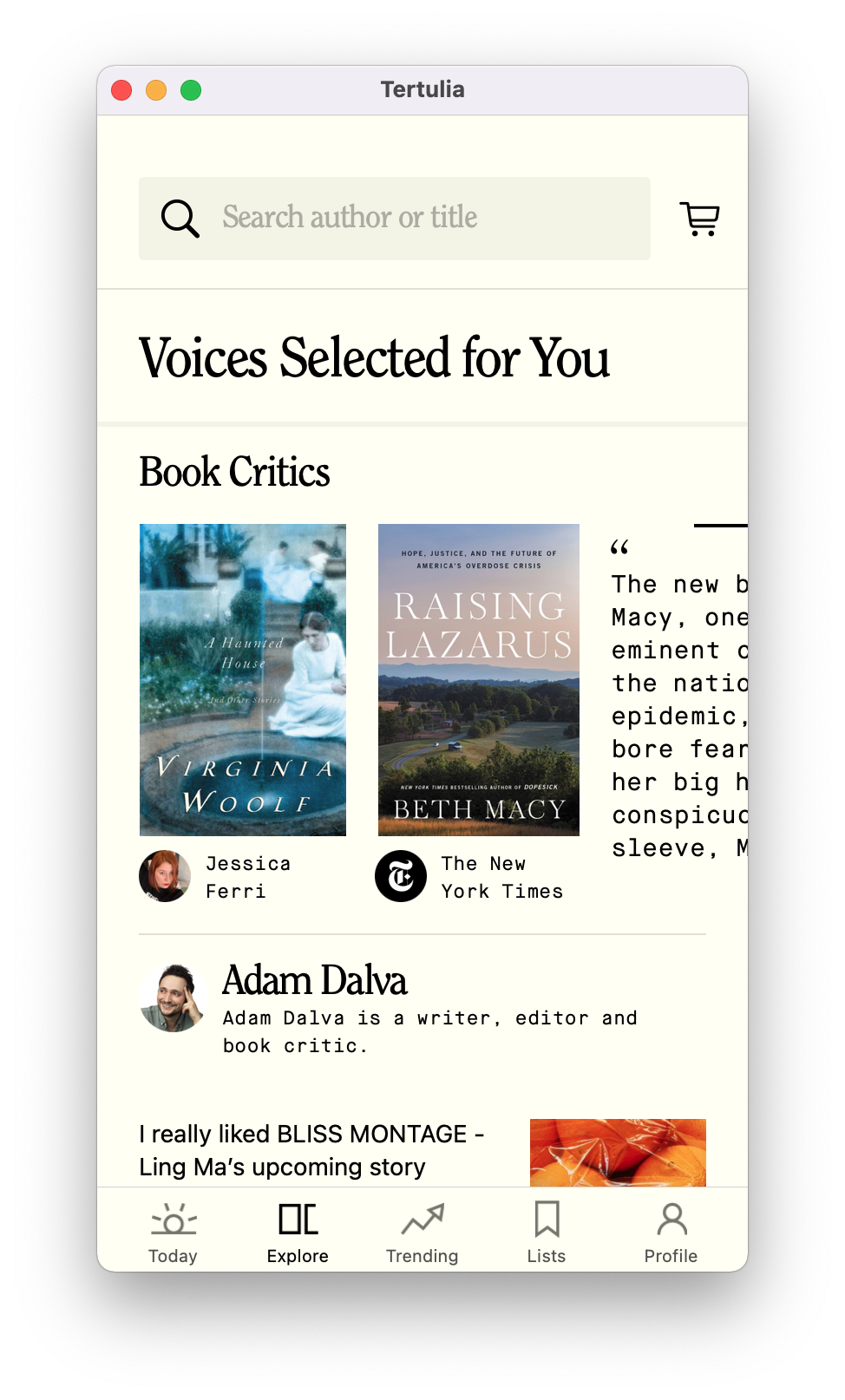
Down the page are more images and tweets as the app scrapes data from social. There’s also a section where books that are mentioned by users on Instagram show up. Strangely, that reminds me of Bookstagram.
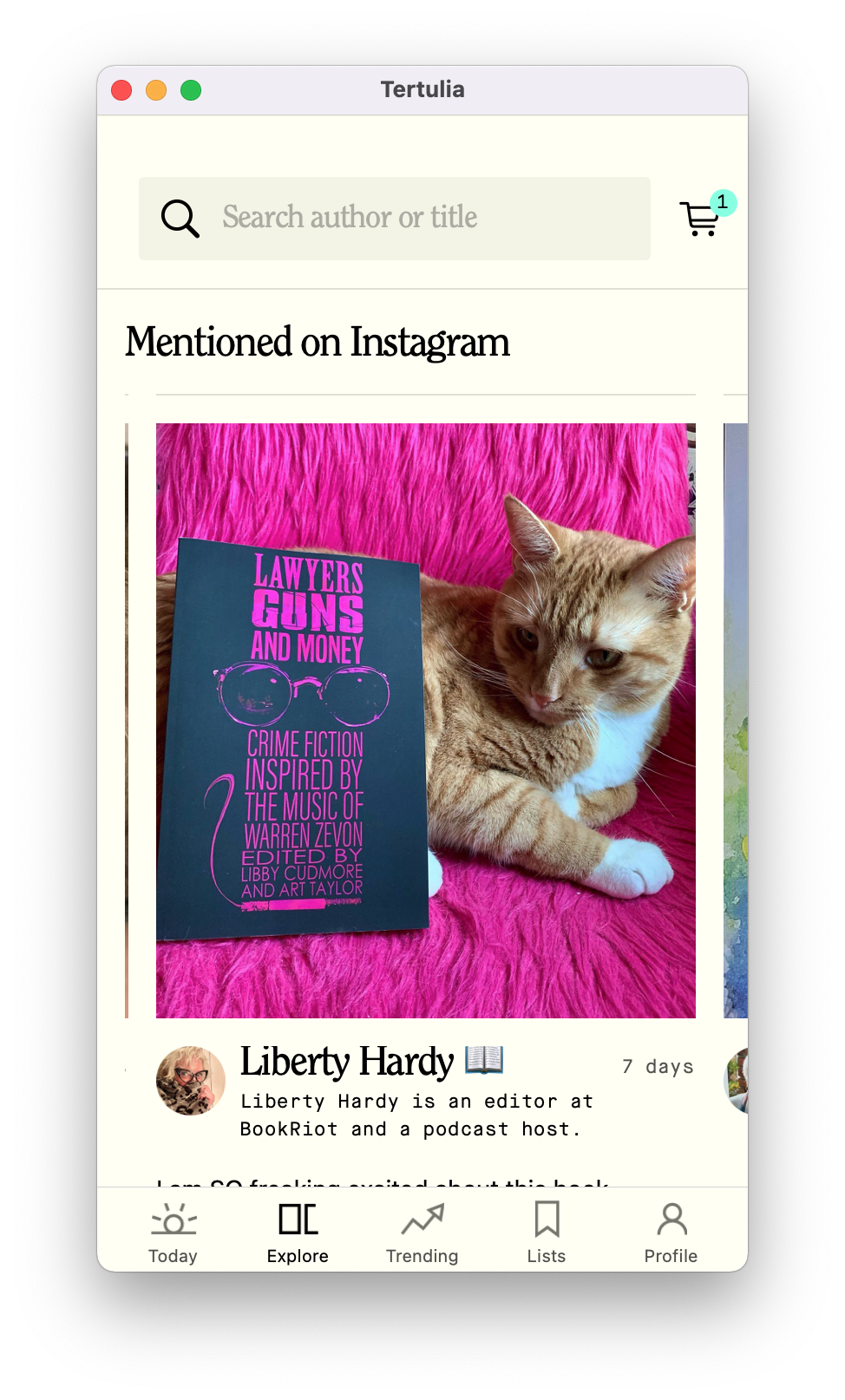
Once you click on one of books in this tab, you can find Goodreads-like reviews from sites such as Literary Hub — or a publication where it’s recently mentioned — and from book bloggers and Twitter users.
There’s also a Featured on Tertulia section that shows the books currently trending on Twitter.
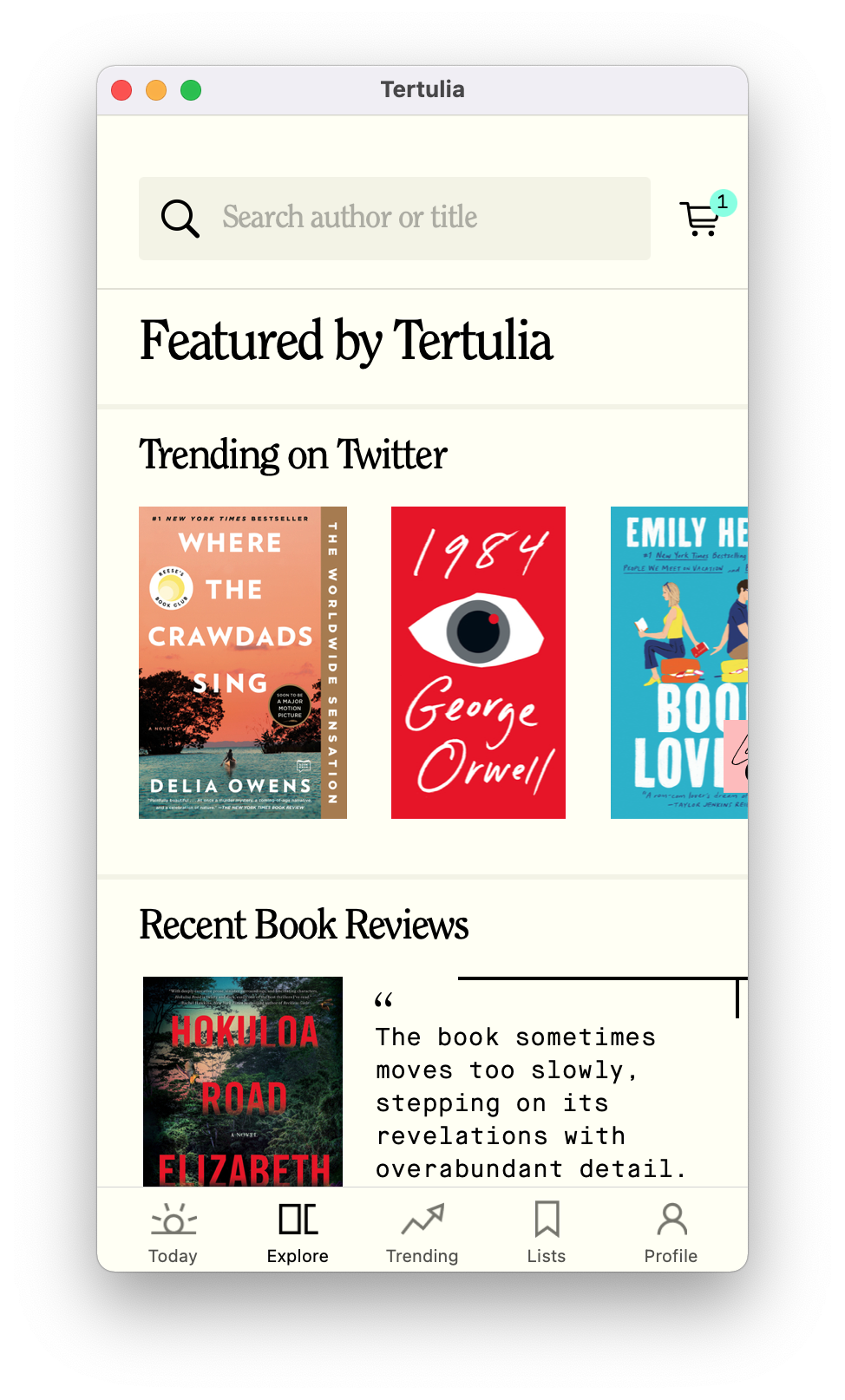
A section is also reserved for books mentioned on podcasts. I can’t, for the life of me, figure out how it does that (does the AI extract the words out from the audio?) I asked Cwilich, but I haven’t received a response.
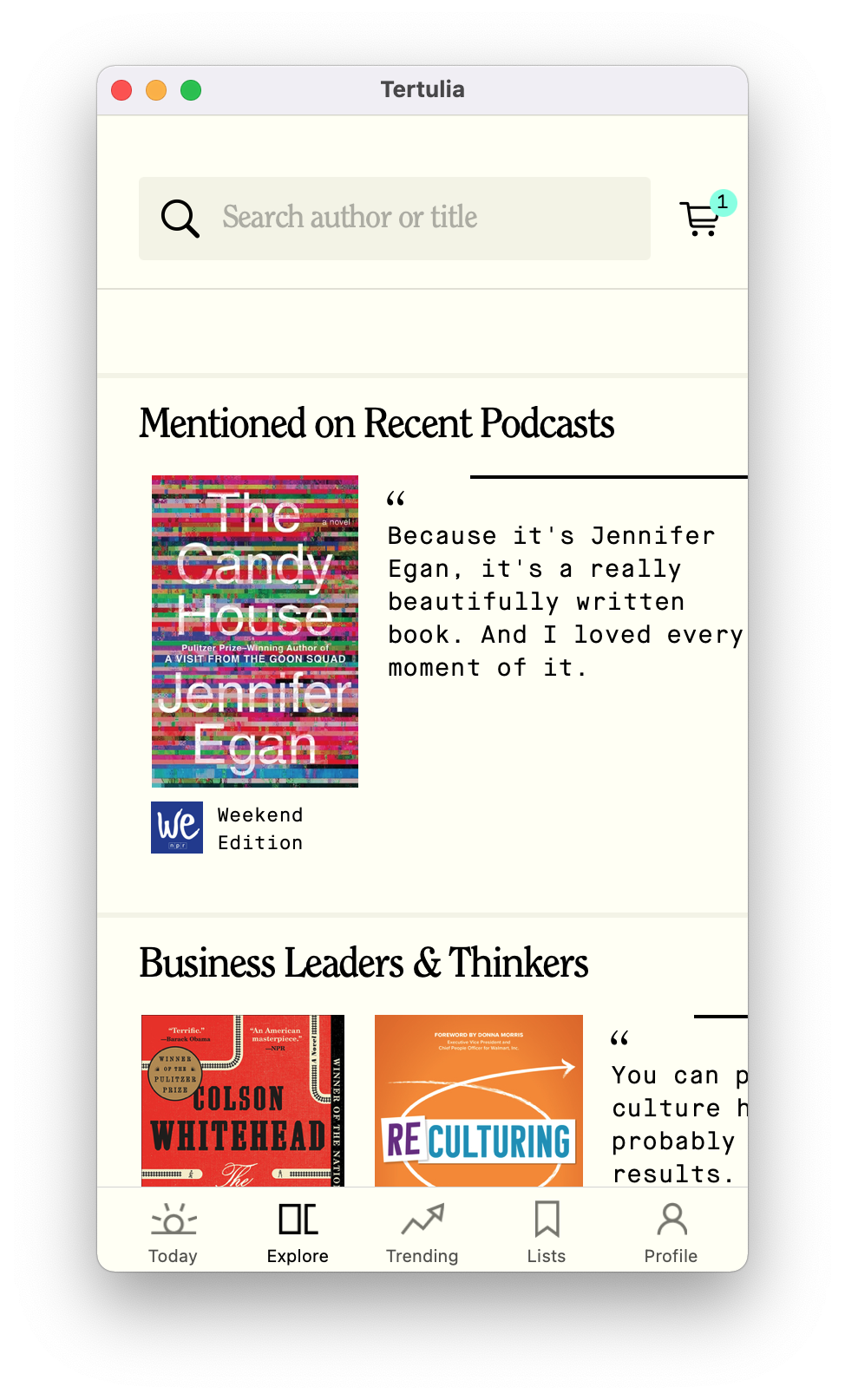
On the other hand, the Trending tab divides lists by genres and feels a lot like The New York Times Best Seller list.
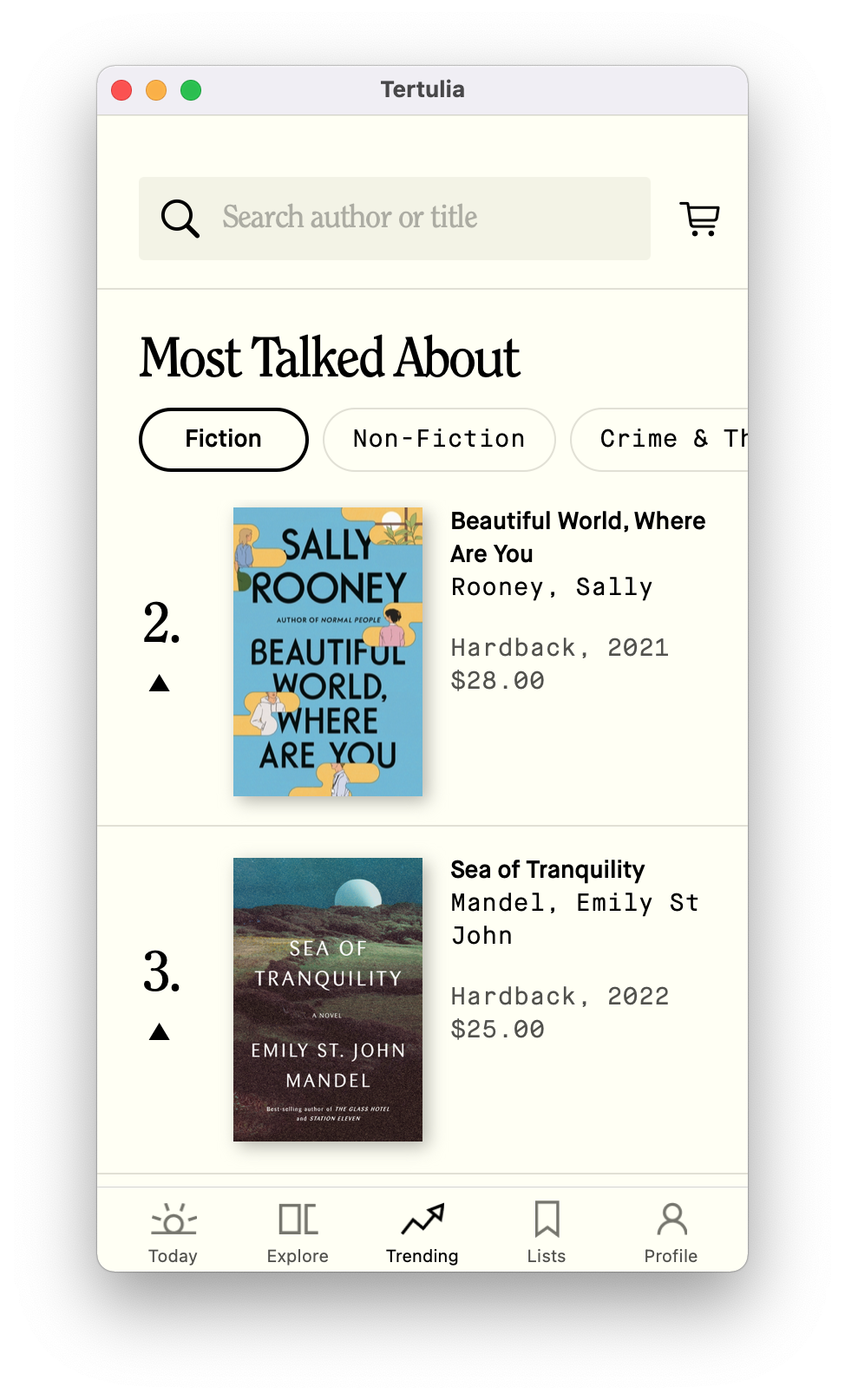
Another tab is Lists, which displays your To Be Read selections, the stuff you’re currently reading, and your read books.
The last tab, Profile, shows stuff like settings, genre preferences, orders, shipping and delivery, etc. Strangely, you can’t create a public profile on Tertulia like you can with Goodreads.
Beyond the Hazy Mix of Literary Discussions
Tertulia feels like a social media, a forum, and an e-commerce store rolled into one app. Books can be purchased directly in-app, and preorders are even possible for books coming out in the future. When you click on a book that’s getting some buzz, the app automatically redirects you to the shop page, removing the need for external apps. Unfortunately, Tertulia doesn’t allow cancellations, but if the book happens to be unavailable, you will get refunded. They also don’t accept returns but will accommodate if there are damages or if you receive the wrong book.
Since Tertulia is a start-up, it wants potential users to fund it by allowing them to become a co-op member. The benefits of being a co-op member include free (but standard) shipping for orders, discount of 10% for all books, and equity stake in the company. Tertulia says that for every book purchased, readers get a bigger stake.
Co-op members also have the ability to weigh in on “company strategic initiatives,” such as which app features they would like to get included and how to improve reader-author relationships.
What I Like About It
Unlike similar apps, Tertulia’s user interface really pops. In the Explore tab, images and tweets are presented in a visually striking way.
I’m also impressed by how this app pulls data from different sources that are already available on the internet. For readers, that’s somewhat convenient as there would be no need to pull up Twitter and Instagram to keep track of what’s hot and what’s not in the book world. Personally, I find it valuable since I only care about literary discussions on social and not the daily dumpster fire.
But if you don’t want its book discovery function, the app doubles as a reading tracker.
The Drawbacks
Though the app is definitely helpful in some ways, it can feel jarring as it does many things at once. It’s also a bit concerning how it draws data from some random folks on social, especially from users who didn’t consent to having their tweets and/or images appear elsewhere.
When it comes to its membership program, meanwhile, the equity stake is 10% for co-op members, with members would only benefitting if they collectively buy books worth $100 million. And there’s still obviously a long way to go for that.
Aside from that, there might be other hidden fees in their yearly membership subscription. As of the moment, they are only waived during the introductory free trial period. That means that they could jack up the subscription price come renewal time.
Perhaps what’s a bit worrying is that the app is primarily powered by an AI algorithm. It pulls information from social media and other online activities, and as a privacy freak, that feels a bit invasive. I’d like to know how they store my data and if they share them to third parties.
Tertulia can be a great tool for book discovery. It offers readers various choices and ease in finding out their next great read.
But still, nothing beats human touch, and element present in word of mouth and other interactions that happen offline. Aside from getting book recommendations, these interactions allow you to develop connections with like-minded individuals. I myself found many friends by just attending book signing events, a contemporary equivalent to literary salons from yesteryear. And that’s something that apps such as this can’t replicate.














